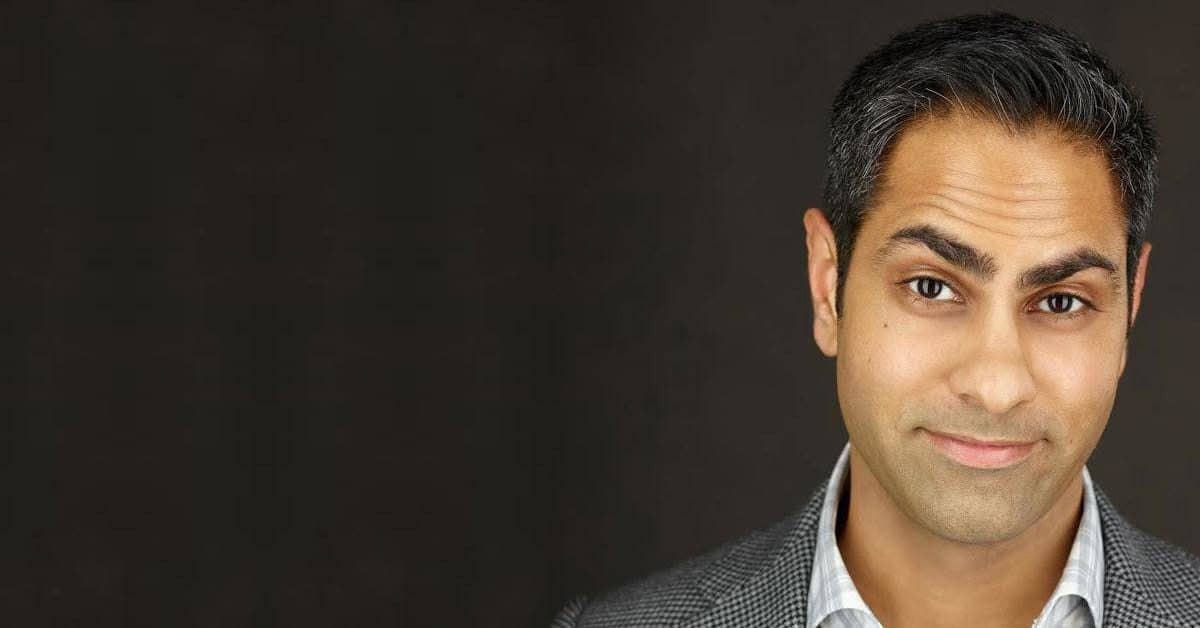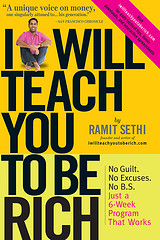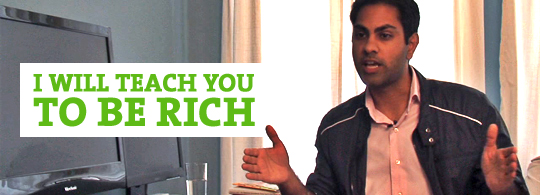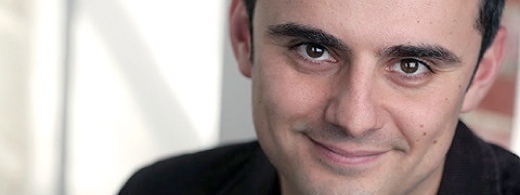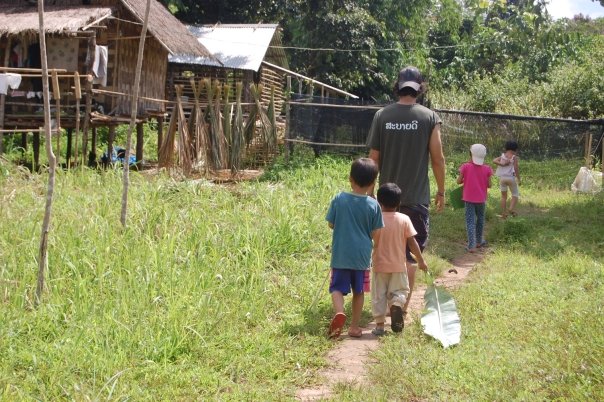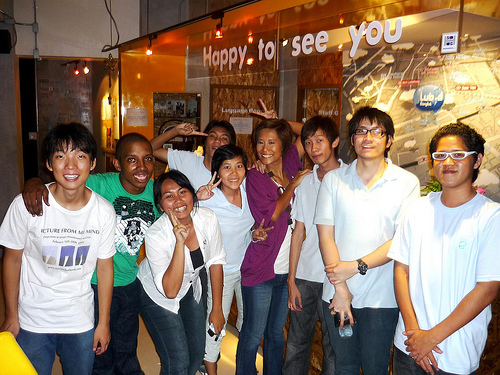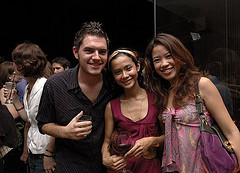If you’re someone who’s tired of living from one paycheck to the next, want to build a solid safety net, curb impulse spending and increase your earning power, then Adam Baker at Man Vs. Debt is someone you should be listening to. He and his wife paid off about $18K in consumer debt, sold all their belongings, and were able to travel the world for over a year (with their 22-month-old daughter!). With a little hard work, they have been able to achieve some incredible things, and because he’s done it, Baker has become a huge authority in the online personal finance world who shares credible advice that will help you eliminate financial stress in your life.
I’ve known Baker since early on after he started his blog in 2009. Since then, he’s quickly amassed a loyal following, joined forces with some of the biggest forces on the social web (Leo Babauta at Zen Habits, J.D. Roth at Get Rich Slowly, and the team at WiseBread). He and I partnered together with a great team to start Untemplater, and finally got the chance to meet in person when he visited Thailand in January on his year-long location-independent world tour! I’ve been looking forward to doing a video interview with him for quite a while now, and this week we were finally able to sit down for a great conversation.
Baker just launched his first ebook guide, Unautomate Your Finances: A Simple, Passionate Approach to Money , which lays out his holistic approach to personal finance. I know from interacting with him on a weekly basis that he’s spent the last several months toiling away on this guide, he’s gotten a tremendous amount of positive feedback, and this is something that is sure to transform people’s relationship with money. Watch our video conversation below to see why you should un-automate your finances, how you can build a more conscious, simple, sustainable financial life, and get the scoop about his world travels since freeing himself from debt prison!
Click here for the full video interview.
- 0:55 – Baker’s college experience, business background & financial history
- 2:15 – White picket fences & opting out of the template life path
- 4:54 – Unconventional approaches to eliminating debt
- 6:45 – Deliberate, effective budgeting
- 8:13 – How to plan for income fluctuations & irregular expenses when you’re a freelancer
- 10:20 – Couchsurfing & backpacking through Australia, New Zealand & Thailand
- 13:38 – Traveling the world with young children
- 16:07 – More about Baker’s new ebook Unautomate Your Finances
- 20:36 – Cultivating a conscious mindset about personal finance & money
- 22:12 – South by Southwest Web Awards & where to find Baker
UPDATE: For more from Baker: check out his Sell Your Crap guide to learn how his family got rid of all their belongings before they went traveling around the world, and how you can sell all your stuff on eBay, Craigslist, and Amazon to make some extra cash. Also, if you want to add a guaranteed $12,000 to your online business over the next 12 months, you might want to grab a seat in his course with Corbett Barr, The Hustle Project. Corbett and Baker are both Faculty members at Digital Nomad Academy, regular recurring mentors for our students inside the Academy, so I can speak personally to the high quality of their coaching.
I’ll be honest: I’m someone who hates to sit down with spreadsheets and budget out my finances. I don’t even like to look at my bank statements every month! With student loans, a lot of random business stuff going on, and the fact that I’m a lazy excuse for a human, my finances are a damn mess, but Baker has developed a product that has fundamentally changed the way I think about money, and he and his wife Courtney are proof that you really can get conscious about how you spend, escape the debt “game” that the rest of the world is stuck in, and start to build the lifestyle you want now! Forget dreaming about retirement, if he and his family can eliminate their debt and go globetrotting, you can get control of your finances and do whatever you dream of doing too.
Here is what you get if you purchase a copy of Baker’s Unautomate Your Finances:
- A comprehensive 83-page eBook. In “The Unautomation Theory” section, Baker relates his experience climbing out of the debt hole and the way that has transformed his family’s lives. He goes on to explain how to avoid financial burnout and unlock conscious financial awareness by un-automating. In “The Science of Unautomation” he’ll help you take a hard look at your priorities and figure out how to budget for what you really want in life. Lastly, in the “Applying Unautomation” section, he focuses on application, showing you how to actively manage your finances with a simple 2-page minimalist budgeting system and apply his “Debt Tsunami” tactic to rid yourself of debt.
- A 27-minute video interview with Leo Babauta of ZenHabits.net. Baker interviews Leo on how he applied the principles of simplicity and minimalism to dramatically turn around his financial life. Powerful insights from a leader in simplicity, blogging, and productivity.
- A 29-minute audio interview with J.D. Roth of GetRichSlowly.org, one of the top personal finance blogs on the web. J.D. joins Baker on a call to discuss his own financial recovery story and what it’s like now that he’s in the “third phase of personal finance“.
- A 2-page, custom-designed PDF version (printable) of the minimalist budgeting system discussed in the main guide.
- A simple Excel template for those who want to take the minimalist budgeting system digital.
- Free Extended Updates! Get on the exclusive email list and over the next 6 months, Baker will be releasing sample case studies, FAQ’s, and exclusive interviews… for free!
At just $17, I honestly thought he was nuts for giving away so much hard work, but it just goes to show how dedicated he is to providing real value and helping those who need financial guidance. This is a truly impressive product that would typically go for at least $39 if you look around at other bloggers online, and it comes with Baker’s “as long as I have a pulse” money-back guarantee. So if you need to learn how to get the best of your personal finances, start an emergency fund, successfully get out of debt, and create a realistic budget that will let you achieve your financial and life goals, then Unautomate Your Finances is definitely something you need to check out.




